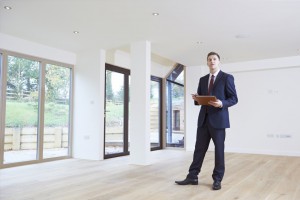 If you have to leave your residential or commercial property empty for more than a month or so, here are a few unoccupied property insurance tips.
If you have to leave your residential or commercial property empty for more than a month or so, here are a few unoccupied property insurance tips.
When might you need it?
There are any number of reasons why a property you own has to be left unoccupied, including:
- you are having to work away from home – in this country or abroad – for a month or more;
- a property in which you have an interest is subject to probate and awaits a conclusion pending its final sale;
- you are moving house and taken up residence in your new home, awaiting the sale of the previous property;
- you have called in the builders to make extensive renovations or build an extension that leaves the property temporarily uninhabitable; or
- you are the landlord of property for which one tenancy has just concluded and you are awaiting new tenants taking up residence.
Why do you need it?
Whatever your reason for leaving the property empty for a while, you might be tempted into thinking that the regular home insurance or landlord insurance which currently protects the premises simply continues as before.
Closer examination of that insurance policy, however, is almost certain to reveal that cover lapses – or at least becomes severely restricted – once it has been left empty for 30 to 45 consecutive days or so (the particular interval being determined by different insurers’ specific policies).
If you are vacating your property for longer than a month or so and want to investigate further the need for unoccupied property insurance, you might want to get in touch with us here at Cover4LetProperty, where we are able to arrange tailor-made cover to suit your needs.
Why does that standard form of insurance lapse?
Whilst the biggest single tip is the suggestion that you arrange purpose designed unoccupied property insurance, it might also be helpful to understand why that is necessary.
The answer is quite simply because of the changed risks and perils faced by your property once it is left unoccupied:
- with no one at home, or responsible for the day to day management of the premises, a relatively minor fault or failure may develop into a full-blown crisis unless it receives immediate attention and repair;
- a small water leak, unchecked, can cause a lot of damage, for example;
- the risk of fire – sparked by a faulty electrical connection or gas supply for instance – is considerably higher in unoccupied premises, where there is no one to raise the alarm; and
- unoccupied property typically attracts all manner of unwanted attention – encouraging theft, vandalism, squatters and other intruders.
Recognising the significance of these additional risks, insurers reduce or allow standard cover to lapse, so that unoccupied property insurance is necessary to restore the safeguards the premises require.
Tips on the care of your empty property
Appropriate insurance represents only half of the picture – the other half is very much down to your own, essentially common sense precautions. Reasonable steps to mitigate the risk of loss or damage, after all, is something typically expected by any insurer.
What form might some of these precautions take?
- when there is no permanent presence on the premises, regular monitoring and inspection becomes essential – and may be carried out by a friend or neighbour if you are an owner occupier but might require the professional services of a specialist company if you are the landlord of residential or commercial property;
- whether inspections are carried out on an informal basis or by a professional property management company, a written record of each visit needs to be kept – in support of any unoccupied property insurance claim you might subsequently need to make;
- if it is the home in which you normally live, you are probably accustomed to avoiding any obvious advertisement of there being no one at home;
- this might include the judicious use of timer-switched interior lighting, the collection and removal of any deliveries, maintenance of any gardens and the possibility of a neighbour parking their car in your driveway to help create the impression of the property being occupied;
- common sense fire precautions include the removal of combustible materials – or at the very least, making sure they are kept well away from boilers and other sources of heat;
- smoke detectors and fire alarms may also help to raise the alert in the case of an incident;
- whilst proper lagging of pipes may help to reduce the risk of freezing and burst pipes in cold weather, you might also want to consider draining down and turning off water supplies and other utilities;
- although you are unlikely to be there quickly enough in the event of an incident, someone needs to hold keys to the property to gain access in the event of an emergency;
- in that case, it is important that emergency services – such as the police, fire service and utilities – also know the names and contact details of such key holders.
By following at least some of these tips, you might help to keep your unoccupied property free of major incidents, safe and secure.







